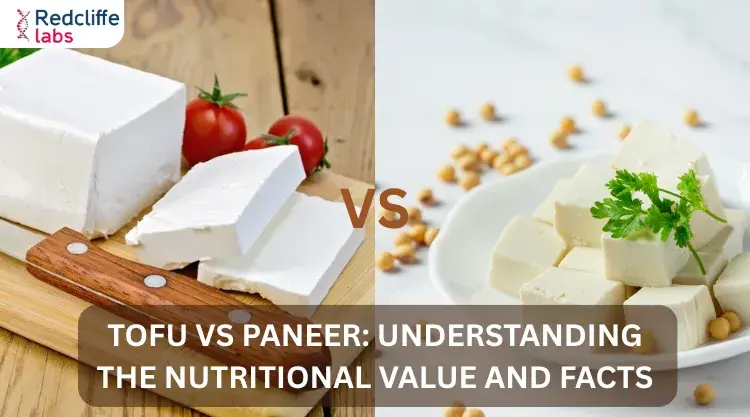Why is Moringa/Sahjan (Drumstick) the Most Powerful Vegetable?

Medically Reviewed By
Dr. Mayanka Lodha Seth
Written By Ankita Mishra
on Apr 1, 2025
Last Edit Made By Ankita Mishra
on Jul 19, 2025

Sambhar without drumsticks?
More like baarish without pakoras
People know it by different names; some call it moringa, some sahjan, and some the OG drumsticks. However, one thing remains constant.
What’s that you ask?
Well, it is popular for having abundant amounts of nutrients.
For centuries, vegetables have been a staple in almost every household in India because of their nutritional and medicinal benefits.
From the leaves to the seeds, everything about it is healthy.
This blog post will teach you about the health benefits of moringa and ways to incorporate it into your daily meals.
Moringa, A Super Food?
Yes, the vegetable is crowned a superfood because of its exceptionally high nutritional benefits. Moringa is loaded with essential vitamins, minerals, and even antioxidants, so it is an addition to any healthy meal.
1. Essential Nutrients:
Here is a chart that will help you understand all the nutritional benefits of the vegetable better:
| Nutrient | Benefit |
| Vitamin A | Boosts Immunity and Eye Health |
| Vitamin C | Betters skin health and immune system |
| Vitamin E | Protects cells from damage by acting as an antioxidant |
| Calcium | Strengthens teeth and bone health |
| Iron | Boosts RBC production, prevents anemia, and improves blood circulation. |
| Potassium | Helps in managing blood pressure and boosts cardiovascular (heart) health. |
| Protein | Has all 9 amino acids making it the best plant-based protein. |
*Along with these nutrients, it has antioxidant and anti-inflammatory properties.
2. Antioxidant Properties:
Sahjan contains antioxidants like quercetin, chlorogenic acid, and beta-carotene. They control free radicals.
3. Supports Anti-Inflammatory Responses
Chronic inflammation is linked to several health conditions, including diabetes, arthritis, and cardiovascular diseases. Moringa contains isothiocyanates, which help reduce inflammation naturally.
4. Helps Regulate Blood Sugar Levels
Research suggests that Marrow can help lower blood sugar levels, which is beneficial for individuals managing diabetes. The plant compounds found in Marrow assist in stabilizing glucose and insulin levels.
5. Aids Digestion and Gut Health
Moringa leaves are an excellent source of fiber, which aids digestion, prevents constipation, and promotes a healthy gut microbiome.
6. Enhances Skin and Hair Health
Moringa's high vitamin and antioxidant content contributes to glowing skin and strong, healthy hair. It also helps combat skin aging and hair fall.
7. Strengthens Immunity
With its antibacterial, antiviral, and antifungal properties, Moringa strengthens the immune system and helps protect the body from infections.
8. Promotes Heart Health
Moringa is known to help reduce cholesterol levels, regulate blood pressure, and support cardiovascular well-being.
9. Supports Detoxification
Moringa has natural detoxifying properties that help cleanse the liver and remove harmful toxins from the body.
Fascinating Indian Facts About Moringa
- Moringa has been used in Ayurveda for over 4,000 years and is recognized as a potent medicinal herb.
- In South India, Moringa pods are a staple ingredient in dishes like Sambar and Avial.
- The Indian Army includes Moringa in soldiers’ diets to enhance stamina and immunity.
- Moringa trees are commonly grown in Indian villages due to their ability to purify water and provide nutritional benefits.
Simple Ways to Include Moringa and Moringa Powder in Your Diet
Understanding Moringa’s benefits is just the beginning. Here’s how you can incorporate it into your daily meals:
- Add Moringa Leaves to Curries and Dal
Fresh Moringa leaves can be used in:
- Dal (Lentil Soup): Stir in fresh Moringa leaves for extra nutrients.
- Vegetable Curries: Enhance your curries with a handful of Moringa leaves.
- Stir-Fried Dishes: Sauté Moringa leaves with garlic and spices for a nutritious side dish.
- Use Moringa Pods in Traditional Dishes
- Sambar: Moringa drumsticks are commonly used in South Indian Sambar.
- Stews and Soups: Add Moringa pods for additional flavor and nutrients.
- Vegetable Stir-Fry: Cook with onions, tomatoes, and spices.
- Enjoy Moringa Tea:
Brew fresh or dried Moringa leaves in hot water to make a refreshing and detoxifying tea. Enhance the flavor with honey and lemon.
- Blend Moringa Powder in Smoothies
Moringa powder is a convenient way to increase your daily nutrition. Blend 1 teaspoon of Moringa powder into:
- Fruit smoothies
- Green detox juices
- Protein shakes
- Mix Moringa Powder in Chapati or Paratha Dough
To boost nutritional value, incorporate moringa powder into whole wheat flour while preparing chapati or paratha dough.
- Stir Moringa Powder into Soups and Sauces
- Add Moringa powder to soups, gravies, or curries.
- Sprinkle over salads or mix into salad dressings.
- Use Moringa in Omelets and Scrambled Eggs
Enhance your breakfast by adding finely chopped Moringa leaves or a pinch of Moringa powder to eggs.
- Make Moringa Energy Balls or Protein Bars
Combine Moringa powder with:
- Experiment with Moringa in Baking
Add Moringa powder to muffins, cookies, or pancakes for a nutritious twist.
- Prepare a Nourishing Moringa Soup
Boil fresh Moringa leaves with onions, garlic, ginger, and spices to create a comforting, nutrient-rich soup.
Conclusion
Moringa (Sahjan) is undeniably one of the most nutrient-dense vegetables available. Its rich vitamin, mineral, and antioxidant profile offers numerous health benefits, from strengthening immunity to promoting heart health and enhancing digestion. Whether consumed as fresh leaves, pods, or in powdered form, Moringa is a versatile ingredient that can be easily integrated into daily meals for a healthier lifestyle.
Start incorporating Moringa into your diet today and experience the remarkable benefits of this ancient Indian superfood!
Leave a comment
1 Comments
T. Chinpu
Apr 5, 2025 at 3:57 PM.
Moringa is my favorite plant.
Myhealth Team
Apr 7, 2025 at 6:00 AM.
That's is really good to know. It has many benefits also.



